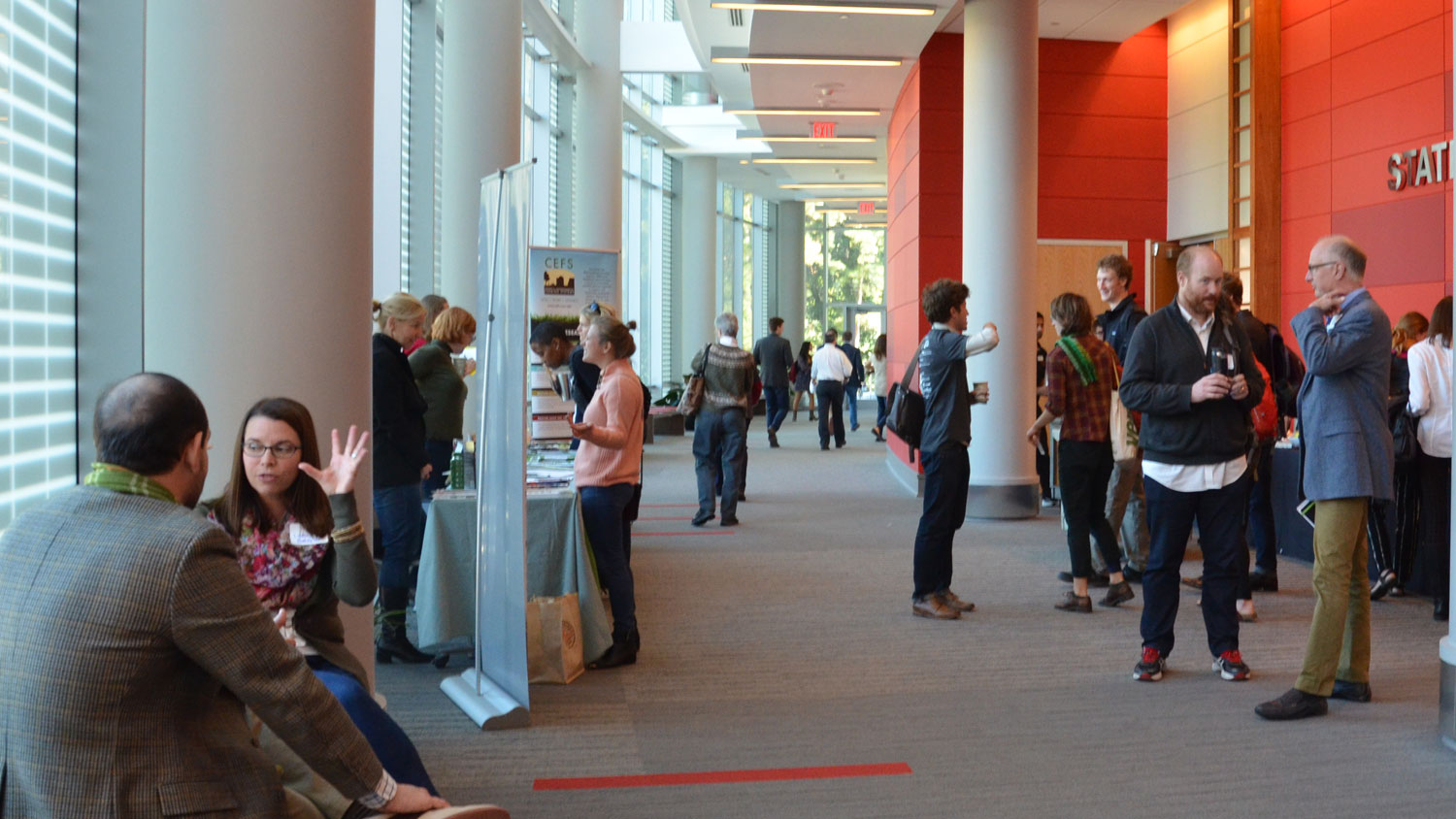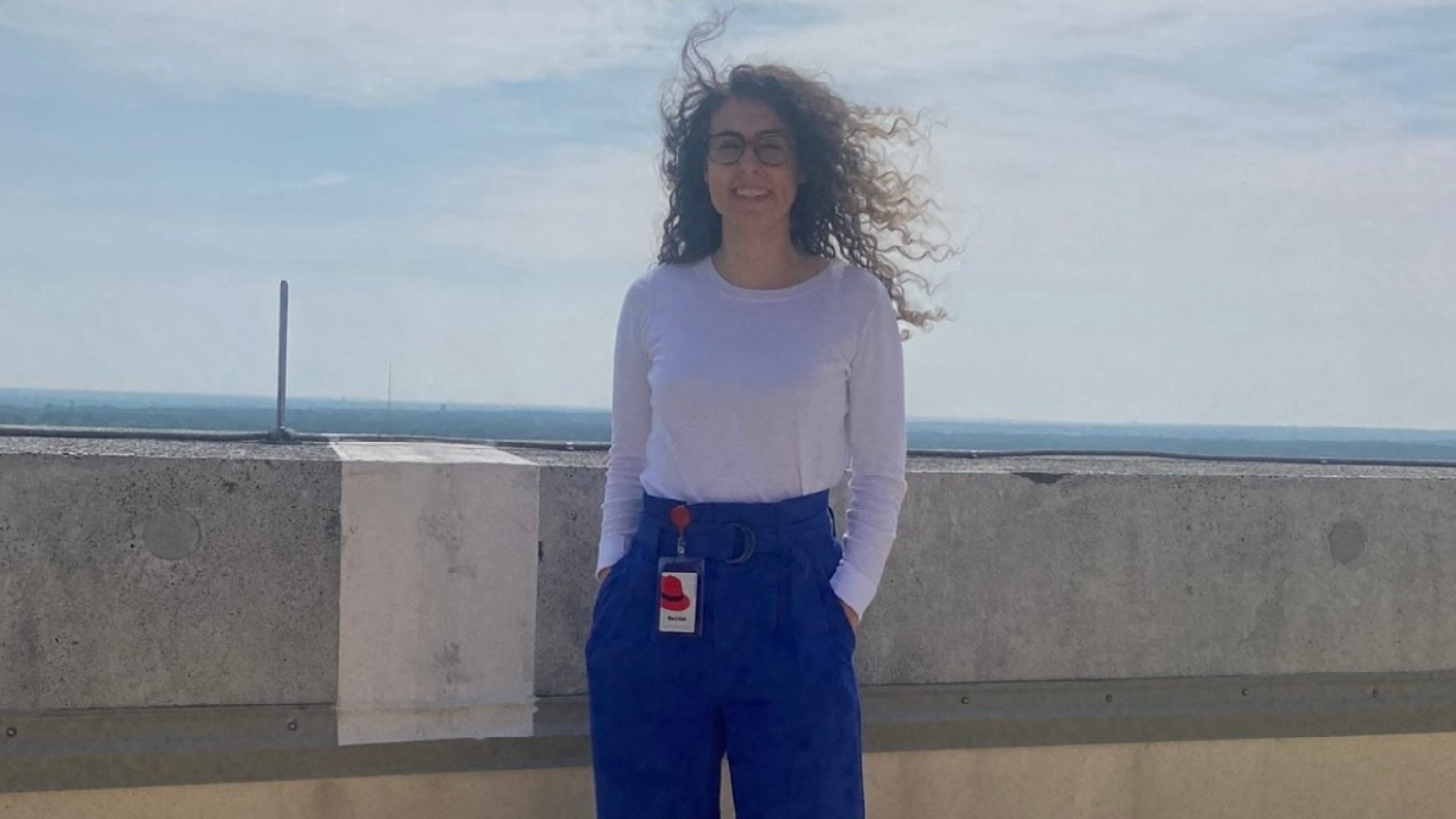An Interview with FoodCon 2016 Student Organizers

In advance of this Friday’s FoodCon 2016, a day-long conference being held at the NC State Talley Student Union, Dana Magliola spoke with one of the event’s organizers, Graham Givens about this event and his studies as a graduate student in the NC State Jenkins MBA program at the Poole College of Management. Following is Magliola’s report from their discussion.
FoodCon is a student-organized, student-founded conference focused on the business of sustainable food. In its third year, plans and the agenda for FoodCon 2016 are impressive already. The goal of the conference is to engage a diverse audience of students, community members, and business professionals with the shared interest in the sustainable food industry, as well as increase the awareness and understanding of the sustainable food industry in North Carolina. Their efforts through FoodCon 2016 also aim to further support and grow the industry locally and throughout the country.
Givens had just returned from New Orleans, La., when we spoke after attending the Food Distribution Research Society Annual Conference. The FDRS, founded in 1967, is an organization dedicated to encouraging applied research in the field of food distribution, assist with food industry education, and provide opportunities for professional development for the food industry. The theme of this year’s FDRS conference was Exploring Linkages in Food Market Innovations, so Given’s research and organizing around FoodCon 2016 were extremely relevant.
“We had the opportunity to learn more at FDRS about the economic impact of local food systems, strengthening local food linkages, and implementing various research concepts,” said Givens, who was also presenting on his graduate research. “As a SCRC Supply Chain Scholar, I have been collaborating with the North Carolina Growing Together Project, an initiative of the Center for Environmental Farming Systems (CEFS).”
A second-year full-time MBA student, Givens’ research is focused on whether a distributor can facilitate the creation of a value chain in the local and sustainable food restaurant supply chain. I asked Givens why he felt that this research was important or unique. “I completed this research by conducting interviews with numerous chefs, employees of local distributors, and farmers throughout North Carolina,” said Givens. “Our research is really the first to look at the creation of value over the course of a year, while our scope includes many of the different players across the supply chain.
”This is an exciting investigation for anyone paying attention to trends that will impact the complex demands on supply chains, especially those around local, organic, or sustainable farmed products – all facing growing demand in the marketplace. “Some of our preliminary findings are that many chefs want to have direct relationships with farmers and not gather information about the product through a distributor, while farmers find it difficult to hold numerous relationships with chefs and don’t really see the financial benefit of doing so,” said Givens of his research. “Together with Dr. Rebecca Dunning, project manager for NCGT, I will continue to observe and research this topic in the coming months.” It will be interesting to see how these dynamics can be reconciled to benefit the consumer and marketplace in a sustainable way.
I also spoke with one of Givens’ classmates, second-year, full-time MBA student Lindsay Schilleman, who also attended the Food Distribution Research Society Annual Conference. Schilleman’s background as an SCRC Supply Chain Scholar and her previous research on supply chain economic impact analysis were especially relevant in a pre-conference session highlighting an economic impact analysis toolkit. “This toolkit provides necessary steps to complete your own assessment in a local city, county, or region of choice,” said Schilleman. “The toolkit session not only provided great networking opportunities with local food enthusiasts, guidance on completing an economic impact analysis using IMPLAN, and it also provides advice for overcoming obstacles such as lack of reliable data in the local foods sector. It was a good introduction for me into the realm of local foods.”
I am always impressed by the ambition of our students, as well as their efforts to connect in a real way with industry on industry terms. Conferences like this are a great example of where our students can gain great insight into the reality of industries where they may want to work. Hearing great outcomes from Givens and Schilleman’s attendance to the FDRS conference is inspiring and leaves us looking forward to Foodcon2016 with even more excitement.
“Overall, the conference provided some great information and contacts in the distribution and economic food research field. It was interesting to hear about all the research that is currently being completed to better understand and facilitate the growth of local food systems,” summarized Graham Givens. “For me, this is particularly relevant to my future career in local and sustainable food supply chains, and it was great to come to New Orleans and be able to bring so much of what I learned back to our upcoming FoodCon conference.”
FoodCon began at UNC-Chapel Hill’s Kenan-Flagler Business School in 2014, bringing together a diverse range of speakers to discuss current trends and issues in the sustainable food industry. In 2015, the conference moved to Duke’s Fuqua School of Business and became a partnership event between UNC, Duke and NC State. This is the first year that NC State University will host FoodCon. Together with NetImpact, the NC State Business Sustainability Collaborative, CEFS, and others, the SCRC is proud to sponsor this event and I recommend you get your tickets now as there are only a few remaining. Good luck to all of our student organizers. We look forward to learning more Friday.
- Categories:


